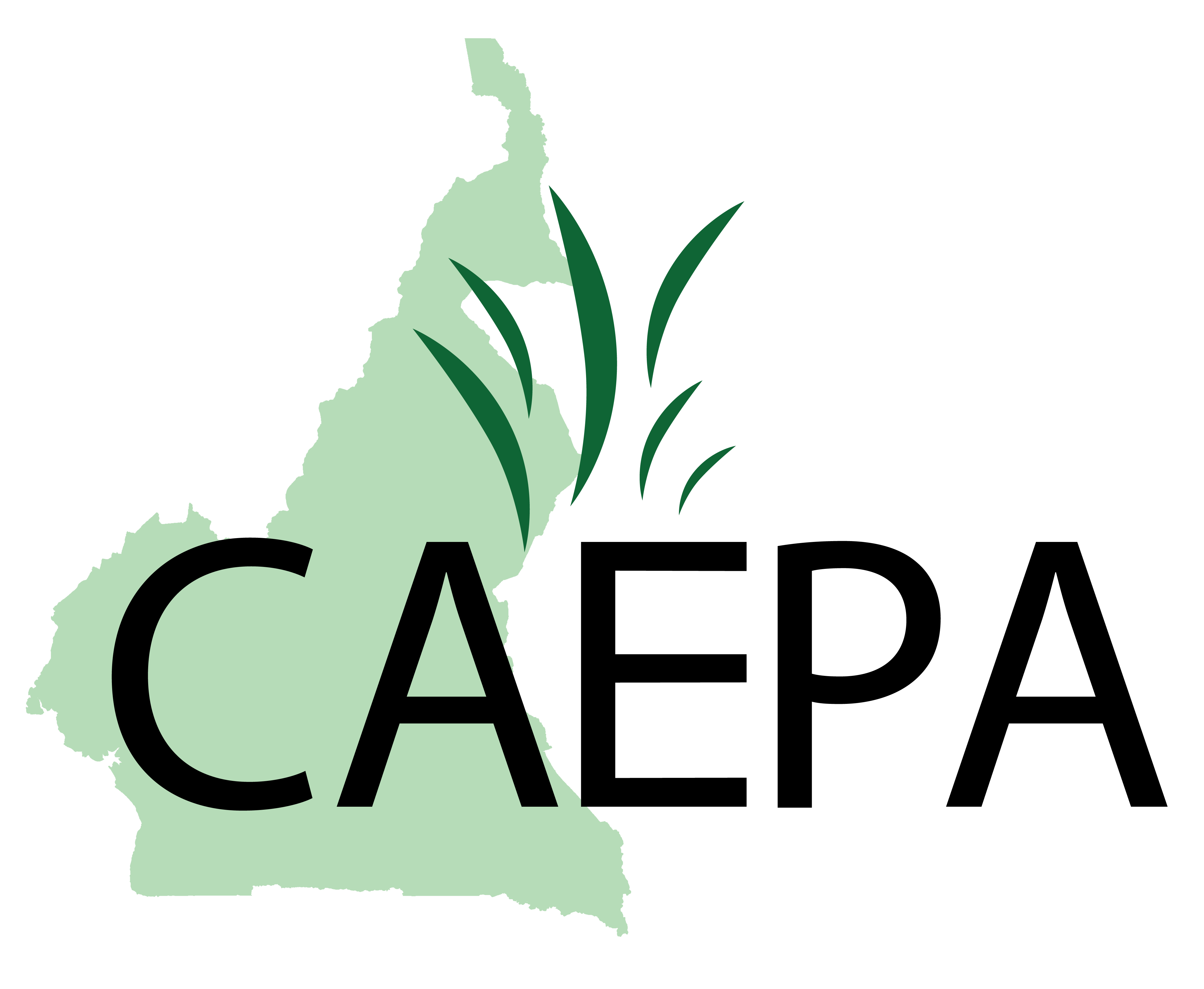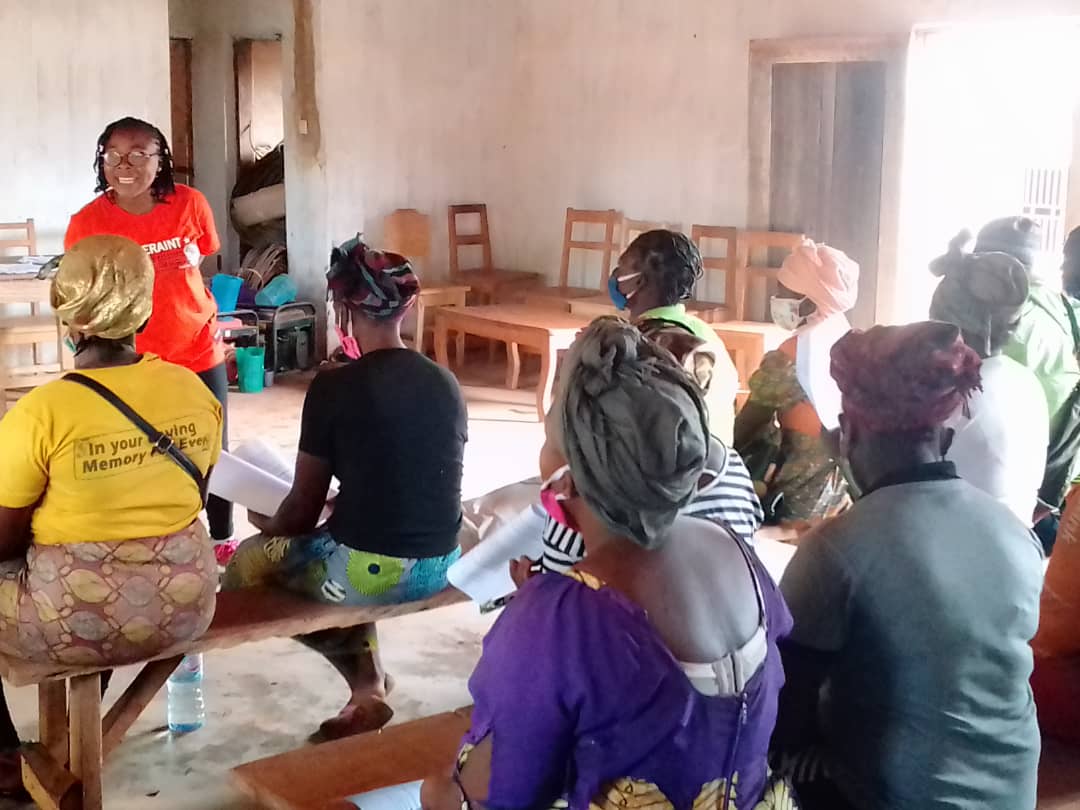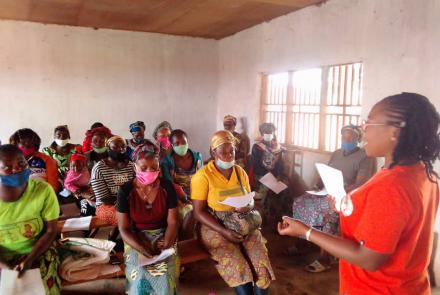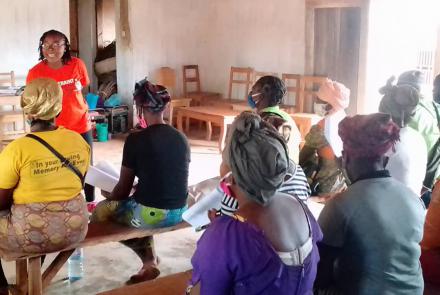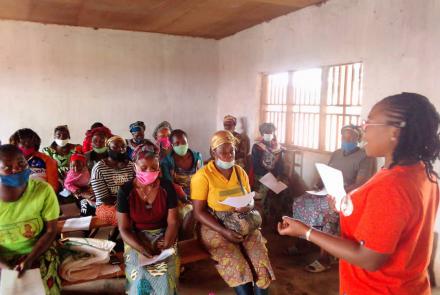Issue Paper on gender-based violence and the impacts of COVID-19 on women in the Bamenda City
Context
In the North West region of Cameroon, gender-based violence (GBV) is as a serious human rights infringement and public health concern. The Anglophone crisis in 2017 added to underlying factors of systematic and structural discrimination against women, “ideologies of male sexual entitlement”, and “community norms that ascribe higher status to men and lower status to women” (WHO, 2021). Prior to the COVID-19 pandemic, up to 56.4% of women in Cameroon had already suffered from emotional and/or sexual violence (Relief Web, 2020) but with the onset of COVID-19 and a shortage of available vaccines, Cameroonian women have become more vulnerable to GBV. Hoping to assess these concerns, CAEPA Cameroon recently conducted focus group discussions (FGDs) with residents women’s rights organizations in the Bamenda I, II, and III Sub-division to understand the concerns of vulnerable women and available support services. Based on the reports CAEPA calls for serious discussion among policy-makers,and local community leaders to improve the efficiency and accessibility of resources and raise awareness about GBV among the Cameroonian population in an attempt to alleviate the sufferings of victims of GBV.
Issues identified by community members and Women’s Organizations
Participants identified a variety of GBV forms that have been most prevalent in the years 2016-21 as both the Anglophone crisis and COVID-19 continue to have negative impacts. It was noted by participants that in Cameroonian society female victims are often blamed and stigmatized, and have limited knowledge of their own rights in these situations. Specifically, they all live under the influence of the “Pulaaku culture,” or the “culture of silence,” where women are supposed to stay submissive to their husbands.
During the pandemic, more than 60% of women in these communities have become impoverished and/or jobless, with many suffering from HIV/AIDS with little access to medical care or sexual health programs. Furthermore, school closures force children to stay at home, often leaving women forced into prostitution to provide for the material needs of their families.
In some communities, no support services exist but elsewhere participants acknowledged services including Plan Cameroon, Christian Women Fellowship, social welfare, Njangi group, and the general hospital. However, the consensus was that staff were often incapable of handling cases with confidentiality and while short-term physical injuries were taken care of, long-term psychological trauma was ignored. Participants also identified judgemental attitudes, victim-blaming, and stigmatization as motivators for silence. Some women in the Mbelem region even blamed their own daughters for putting themselves in dangerous situations. In particular, marital rape was seen as something to keep secret.
CAEPA’s Recommendations
CAEPA has a number of recommendations for Women’s Rights Organisations. Short-term solutions such as extending 24-hour helplines and ensuring the quality of shelters can be bolstered by the expansion of training programs for to case managers, frontline workers, health personnel, and community counselors. Further investment should be given to empowerment activities that create safe sharing spaces and to awareness-raising campaigns that start honest conversations about gender roles. Building on this, a school curriculum should be designed which discusses sexual health, consent, and accountability. Finally, partnership with other women’s rights organizations in the communities can foster collaboration between CAEPA Cameroon and community groups, NGOs, charitable organizations, and faith-based associations.
CAEPA also has a number of recommendations for policymakers including implementing technology-based solutions, providing helplines and online platforms for reporting GBV during the lockdown, allocating funding for town hall meetings and community dialogues as well as for existing women’s organizations and grassroots initiatives including empowerment activities, which help female victims reduce financial dependence on men. CAEPA recommends boosting education and literacy rates and imposing laws on child labor so female adolescents can pursue proper education. Other recommendations focus on developing regional and national legal frameworks that promote gender equality by establishing taxation and minimum wage policies for female workers, training police, judges, prosecutors, and legal aid providers to prioritize complaints of violence, and adapting reporting systems so that they are more accessible. Alongside this is recommended the strengthening of communication and coordination from the regional to federal levels and establishment of cross-border protection mechanisms. Finally, the introduction of a Primary Health Care system that strengthens medical services and improves affordability for pre-and post-natal care and eliminates barriers to healthcare access that are rooted in gender discrimination and power imbalance is recommended.
